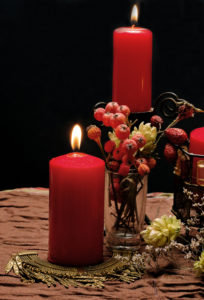
Those outside the Wiccan faith tend to think of it as a monolithic movement with one basic theology and set of practices. However, there is a multiplicity of different observations and traditions. A brief introduction to the british schools of Wicca, which are derived from the initial theologies that birthed them, should help you navigate this fascinating and multilayered faith inspired by pre-Christian religions.
Early Origins: Gerald Gardner’s Esoteric Pursuits
To understand how Wicca has branched out into so many schools, it’s vital to know its basic history. Modern-day Wicca is said to have been founded by Gerald Gardner, an Englishman with an intense interest in archaeology, history, magic, and worldwide esoteric studies. He spent a large part of the twentieth century learning about traditions such as Rosicrucianism and modern Druidism while also studying and practicing Freemasonry. Additionally, Gardner met occultist and polymath Aleister Crowley, with whom he developed a friendship. Crowley eventually promoted Gardner to the higher levels of the Ordo Templi Orientis in the late 1940s.
Meanwhile, Gardner had been collecting knowledge of and writing about magical practices, eventually developing his own additional ideas. It’s a common misconception that he came up with the term “Wicca,” but Ethan Doyle White debunked this in a 2010 article in The Pomegranate: The International Journal of Pagan Studies. Gardner called these practices by a few names, including “Craft of the Wise” and “Witchcraft.” The term “Wicca” did not emerge until the 1960s, and sources disagree on who first coined it.
Two British Branches of Wicca
Gardnerian and Alexandrian Wicca are usually both classified under British Traditional Wicca. The two branches share a lot of similarities, including the requirement of being initiated into a coven by a High Priestess or Priest. These groups, especially the Gardnerian sects, operate much like the sacred mystery cults of the ancient Middle East that forbade the sharing of rituals and practices with outsiders. Additionally, those in the covens are not permitted to “out” or reveal the membership statuses of others.
Common in the two traditions are some basic tenets such as the reverence of a God and Goddess pair. The Horned God is said to represent nature, wilderness, sexuality and hunting, and is generally seen as corresponding to the life force. The Mother Goddess, typically associated with the Earth, is often visualized in three aspects: maiden, mother and crone. This pairing of deities, as well as the view of natural forces in the world, also reflects an idea of balanced gender polarity, or the existence of male and female aspects. Finally, these branches also observe the Wiccan Rede, a basis for key moral concepts by which practitioners live. While it is usually phrased as “an it harm none, do what ye will,” other slight variants exist.
The differences between Gardnerian and Alexandrian theology lie in some minor variations in names, theology and rituals. For example, the author of the Mom’s A Witch blog notes that Alexandrian tradition emphasizes an equality between the God and Goddess and the use of ceremonial magic during Esbats and Sabbats. Alexandrians also tend to practice with the philosophy of “if it works, use it,” which focuses on results rather than maintaining strict purity of traditions. Finally, they consider certain practices within Gardnerian Wicca to be optional, such as performing rites while nude.
Looking Toward the Future
While Alexandrian and Gardnerian Wiccan practices promise to continue, other schools have developed alongside them in the last few decades. Some, such as Blue Star Wicca, loosely base their theologies on British Traditional branches, while others, like Dianic Wicca, have adopted new concepts. Today, modern Wiccans continue to shape and change their beliefs to incorporate new understandings, rites and traditions from around the world.

